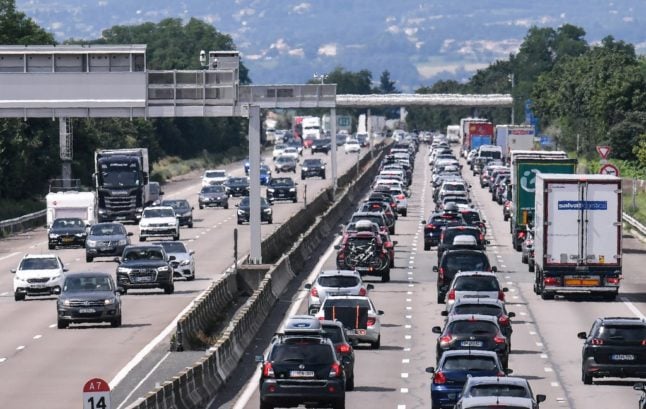Schools in France have not yet broken up for les grandes vacances, but traffic is expected to be heavier than normal on the country’s arterial roads as some holidaymakers head off early.
France’s roads monitor Bison Futé has warned travellers to expect delays and heavy traffic across the country. It has issued an orange warning – it’s third-highest level – for the whole of the country apart from the Paris region of Île-de-France, which it has placed on red alert for traffic levels heading away from the capital for Friday.

In the Paris region, traffic will be heavy towards the toll gates of the A10 and A6 autoroutes, where the first slowdowns could be recorded from late morning. The ring road and the A86 and A6b freeways will also be affected by these difficulties.
In the middle of the afternoon, the combination of commuters heading home and holidaymakers escaping the city is forecast to make travel difficult until late in the evening. Bison Futé advises those who can do so to leave or cross the Île-de-France before 12 noon.
Elsewhere, it is not recommended to leave the metropolises and their suburbs between 2pm and 7pm.
Bison Futé recommends avoiding travel on Friday, July 1st:
- The A10 between Orleans and Poitiers, from 8am to 7pm;
- The A63 between Bordeaux and Bayonne, from 4pm to 7pm;
- The A7 between Lyon and Orange, from 11am to 8pm;
- The A7 between Orange and Marseille, from 1pm to 7pm;
- The A7 between Marseille and Orange, from 2pm to 8pm
- the A8 between Aix-en-Provence and Fréjus, from 2pm to 8pm;
- The A8 between Cannes and Italy, from 6am to 10pm;
- The A8 between Italy and Fréjus, from 3pm to 7 pm;
- the A43 between Lyon and Chambéry, from 5pm to 7pm.
On Saturday, July 2nd, Bison Futé recommends avoiding:
- Travelling in or crossing the Ile-de-France after 8am;
- Travel out of France’s major cities before 10am;
- The A13 between Paris and Rouen, from 10am to 5pm;
- The A13 between Rouen and Caen from 10am to 1pm;
- The A10 between Orleans and Poitiers, from 9am to 3pm;
- The A6 between Beaune and Mâcon, from 8am to 12noon;
- the A7 between Lyon and Orange, from 8am to 7pm;
- The A7 between Orange and Marseille, from 10am to 6pm;
- the A8 between Cannes and Italy, from 9am to 8pm.
On Sunday, July 3rd:
- Avoid the A7 between Lyon and Marseille, from 11am to 8pm.
Schools in France break up on Thursday, July 7th so traffic is also expected to be heavy next weekend.



 Please whitelist us to continue reading.
Please whitelist us to continue reading.
Member comments